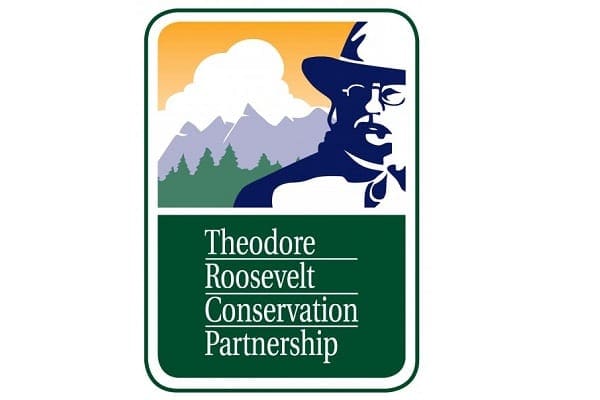House Passes Reconciliation Package That Would Benefit Fish, Wildlife, and Habitat Connectivity

The Build Back Better Act would secure funding for top conservation priorities, including habitat improvements across public and private land
(Washington, D.C.) — This morning, the U.S. House of Representatives passed the Build Back Better Act (H.R. 5376) in a 220-213 vote, advancing conservation provisions that would have an impact on hunting and fishing opportunities across the country. The $1.75-trillion budget reconciliation package now heads to the Senate for further debate.
“These transformational investments in public and private land, climate resilience, and habitat connectivity would provide direct benefits not only to at-risk landscapes but also to our economy—with specific impacts on outdoor recreation businesses and family farms, ranches, and forests,” says Whit Fosburgh, president and CEO of the Theodore Roosevelt Conservation Partnership. “Americans can and should debate the merits of congressional spending, but the return on investment from conservation has been proven time and again. And this bill recognizes the critical role of private landowners in addressing climate change through practices that also benefit fish and wildlife and water quality. We look forward to working with both chambers to ensure that fish and wildlife benefit from once-in-a-generation investments in our natural resources, rural economies, and climate resilience.”
Here are the areas where sportsmen and sportswomen would benefit from this important legislation, should it be passed into law.
Public Lands
Build Back Better would provide $10 million for mapping, restoring, and conserving wildlife corridors. Improving these seasonal habitats would directly benefit big game species, while boosting biodiversity and resilience in degraded ecosystems. There is also $100 million for the protection and restoration of grassland habitats to be distributed by the U.S. Fish and Wildlife Service through grants, contracts, and cooperative agreements.
Private Lands
In its current form, the bill would provide more than $27 billion for Farm Bill conservation programs—effectively doubling the conservation title of the Farm Bill and the biggest investment in private lands conservation since the Dust Bowl. Authorized through Fiscal Year 2026, the bill greatly increases the capacity of USDA technical service providers to work alongside landowners to conserve habitat and improve soil health and water quality.
Climate
If passed, the bill would be the largest climate-related spending bill in U.S. history. It includes $12 billion to launch a Civilian Climate Corps and an additional $30 billion for projects that the Corps would undertake related to wildfire resiliency and restoration. The bill would also provide $9.5 billion for coastal and Great Lakes restoration and resilience. These funds will be used for the conservation, restoration, and protection of coastal and marine habitats and resources, including fisheries, to enable coastal communities to prepare for extreme storms and other changing climate conditions.
The over $25 billion the package would invest in forestry programs further underscores the importance of natural climate change solutions and aligns with many of TRCP’s priorities. These include funding for better forest management, wildfire prevention and restoration, legacy roads and trails, and state and private forestry conservation.
Marine Fisheries
Beyond conserving migration corridors, the bill would further prioritize habitat connectivity by investing $400 million in the Pacific Coastal Salmon Recovery Fund, which helps to restore Pacific salmon and steelhead habitat necessary for their seasonal migration. And an additional $200 million would go toward data collection, management, and ecosystem-based assessments in support of federal marine fisheries. Finally, $250 million would help to repair, replace, and upgrade federal hatchery infrastructure.
The TRCP has tracked the budget reconciliation process since this summer and urged American hunters and anglers to push for the inclusion of many of these conservation provisions. Combined with the impact of conservation investments from the recently passed Infrastructure Investment and Jobs Act, final passage of the Build Back Better Act would set us on a course to make once-in-a-generation improvements to habitat and hunting and fishing opportunities.
Founded in 2002, the TRCP is the largest coalition of conservation organizations in the country, uniting and amplifying the voices of sportsmen and women by convening hunting and fishing groups, conservation organizations, and outdoor businesses to a common purpose.
